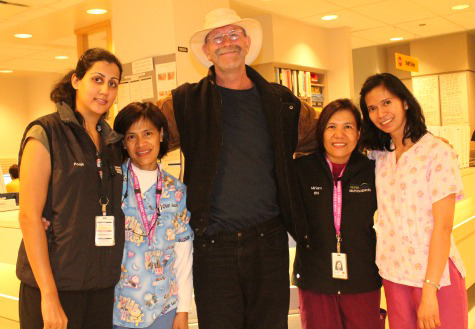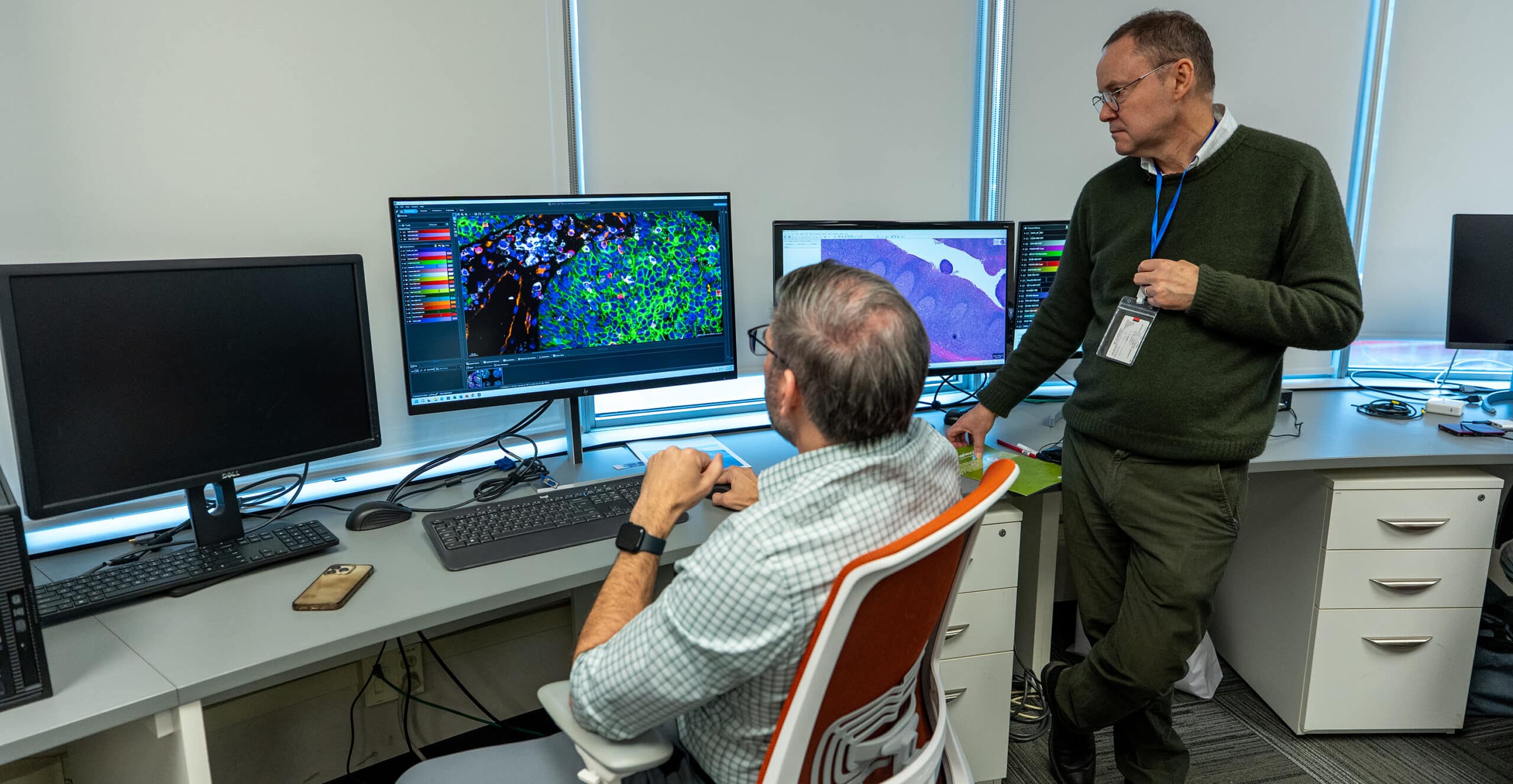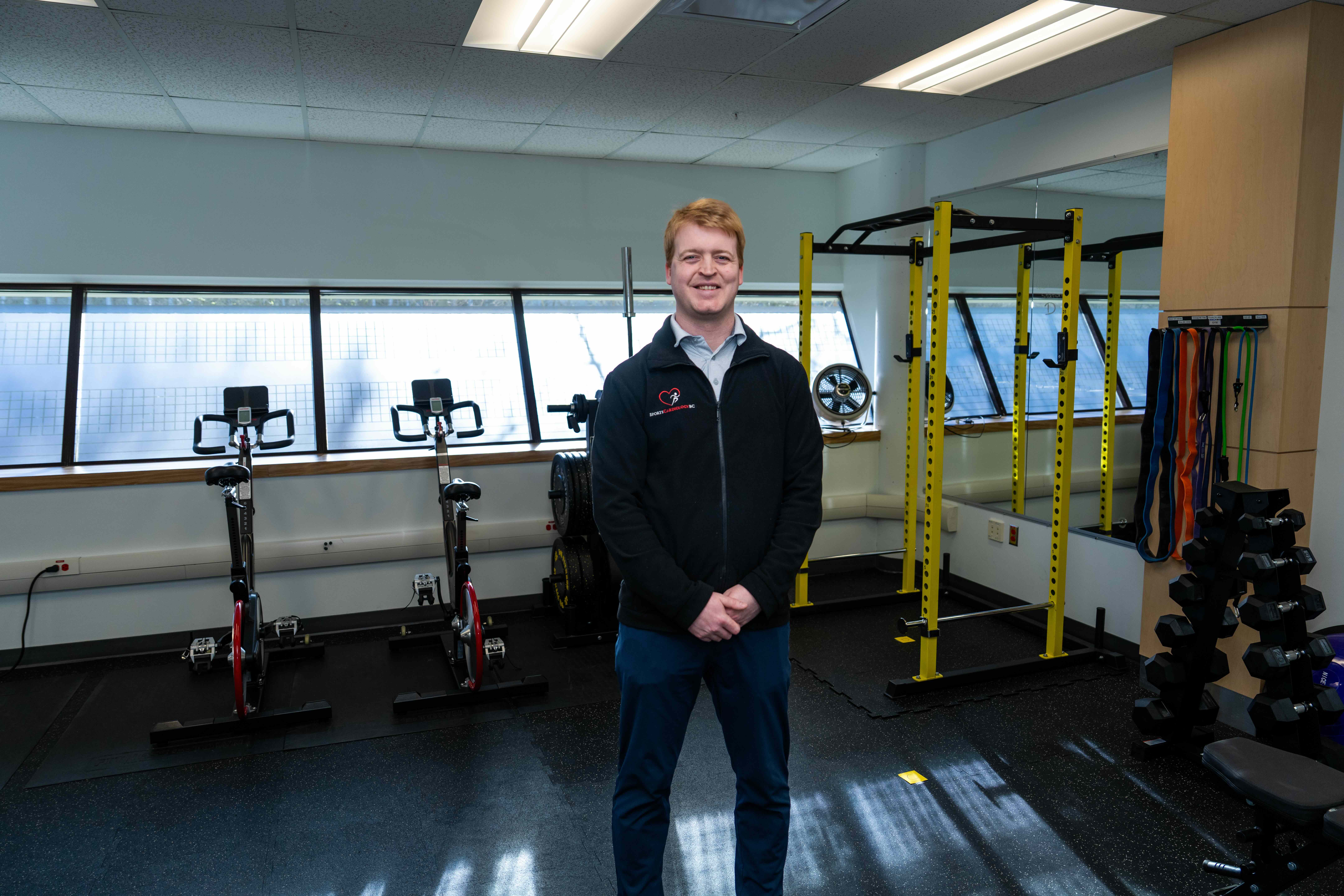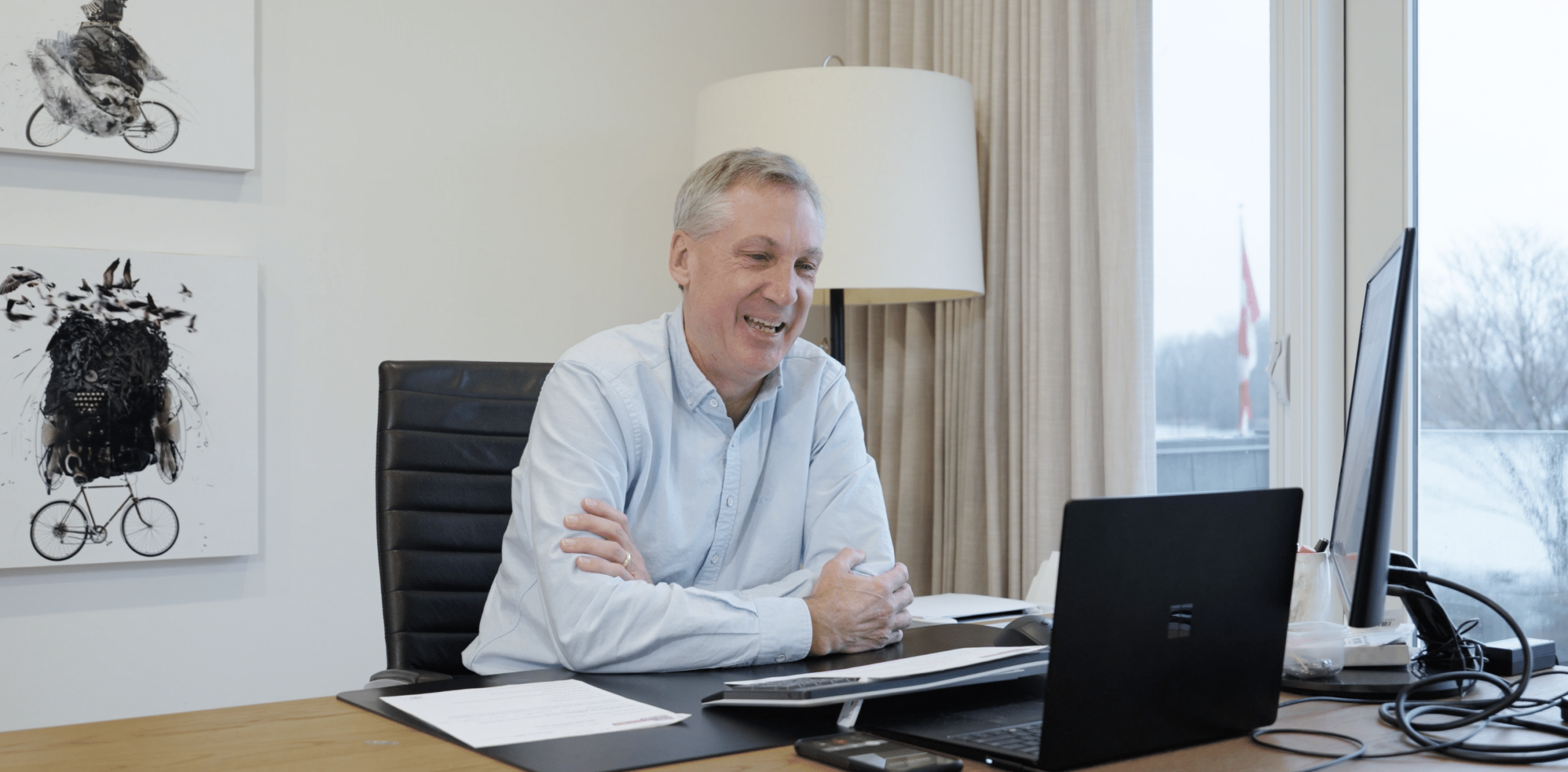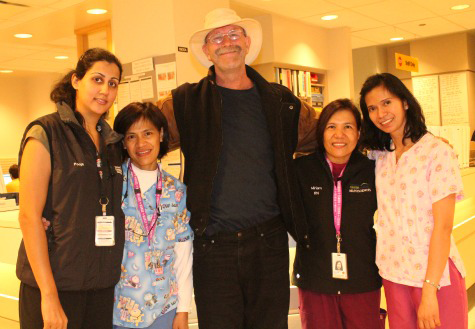
In July 2011, Thomas Anderson lived through a health-care scare; he was emergency airlifted via helicopter to VGH from Powell River, BC after falling unconscious in a public place. The 55-year-old discovered he had a malignant brain tumor and quickly underwent brain surgery at the expert hands of neurosurgeon Dr. Brian Toyota. After the surgery, Anderson woke up a new man with a fresh perspective.
His experience at VGH was more than just surgery to him; it was a journey that led him to conquer his worst fear (dying in a hospital), reunite with old friends and cultivate new ones.
He discovered a sense of community at VGH and wanted to contribute. “This experience completely changed me,” said Anderson. “The first thing I wanted to do was help people.”
As he recuperated, he watched the activities of the health care workers around him. One of the things he noticed was how the nurses pushed to provide the best possible care for their patients. After a conversation with one of them he decided to use a portion of his retirement nest-egg to purchase a new portable bladder scanner for the unit.
“The nurses at VGH wanted to provide better patient care and I wanted to give them what they needed to do it,” said Anderson.
He dedicates his donation to the Neurosciences nursing staff who provided him with endless support during his recovery phase. “They were all fantastic! They made me laugh. And, if you can’t laugh, what good is life?”
Help equip our medical staff to provide better patient care.
In July 2011, Thomas Anderson lived through a health-care scare; he was emergency airlifted via helicopter to VGH from Powell River, BC after falling unconscious in a public place. The 55-year-old discovered he had a malignant brain tumor and quickly underwent brain surgery at the expert hands of neurosurgeon Dr. Brian Toyota. After the surgery, Anderson woke up a new man with a fresh perspective.
His experience at VGH was more than just surgery to him; it was a journey that led him to conquer his worst fear (dying in a hospital), reunite with old friends and cultivate new ones.
He discovered a sense of community at VGH and wanted to contribute. “This experience completely changed me,” said Anderson. “The first thing I wanted to do was help people.”
As he recuperated, he watched the activities of the health care workers around him. One of the things he noticed was how the nurses pushed to provide the best possible care for their patients. After a conversation with one of them he decided to use a portion of his retirement nest-egg to purchase a new portable bladder scanner for the unit.
“The nurses at VGH wanted to provide better patient care and I wanted to give them what they needed to do it,” said Anderson.
He dedicates his donation to the Neurosciences nursing staff who provided him with endless support during his recovery phase. “They were all fantastic! They made me laugh. And, if you can’t laugh, what good is life?”
Help equip our medical staff to provide better patient care.
Share this:
